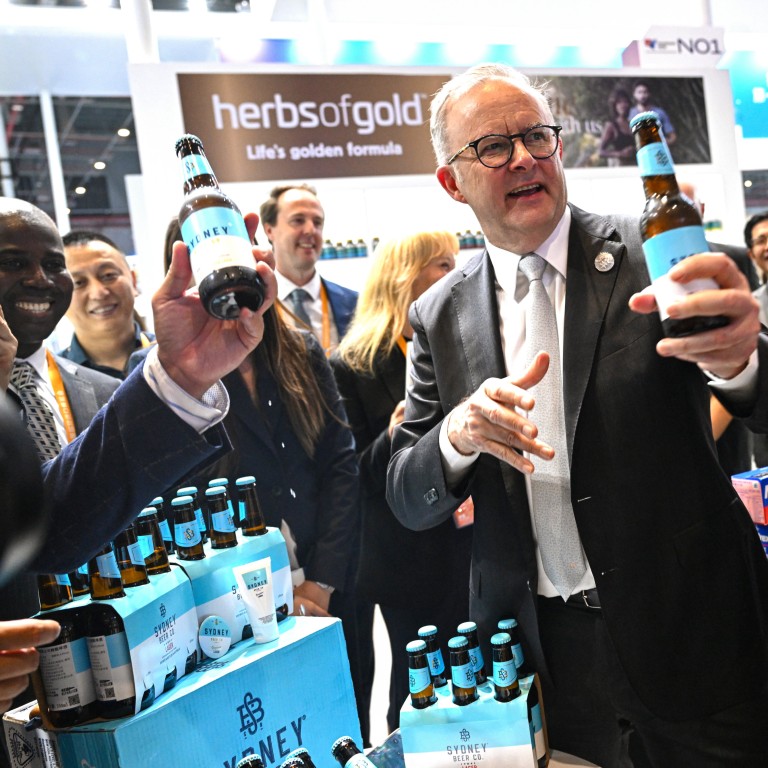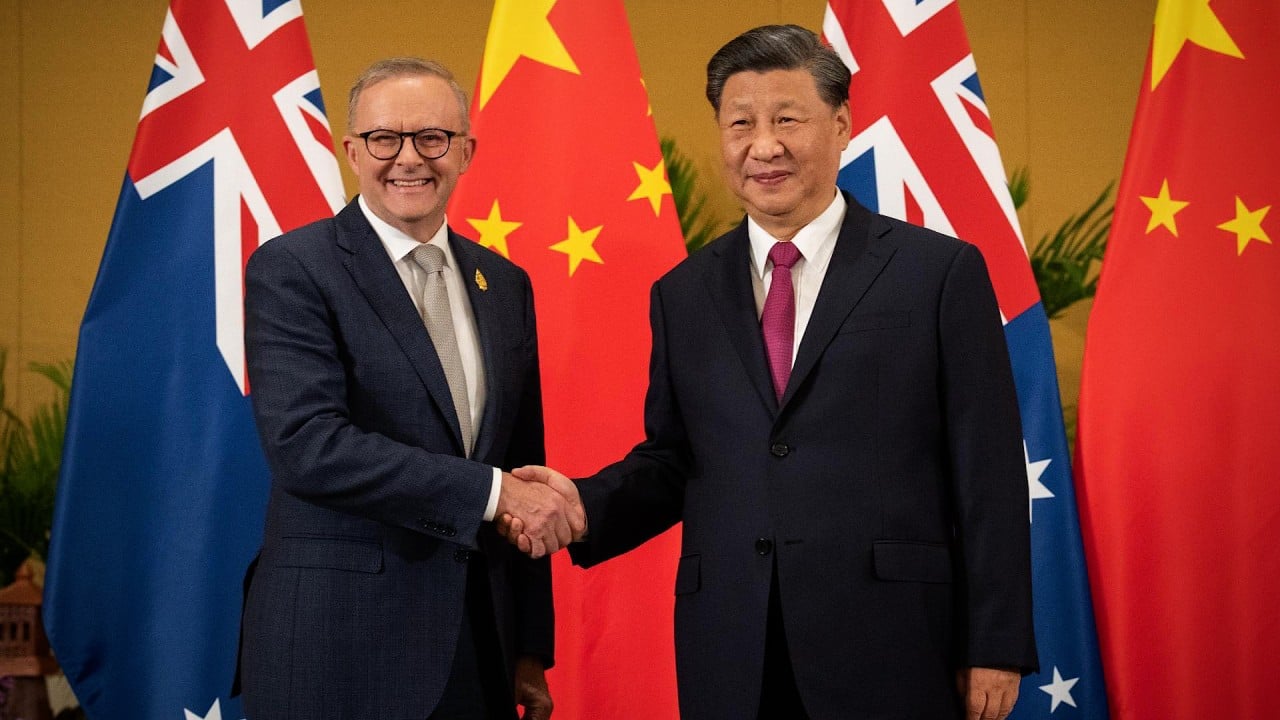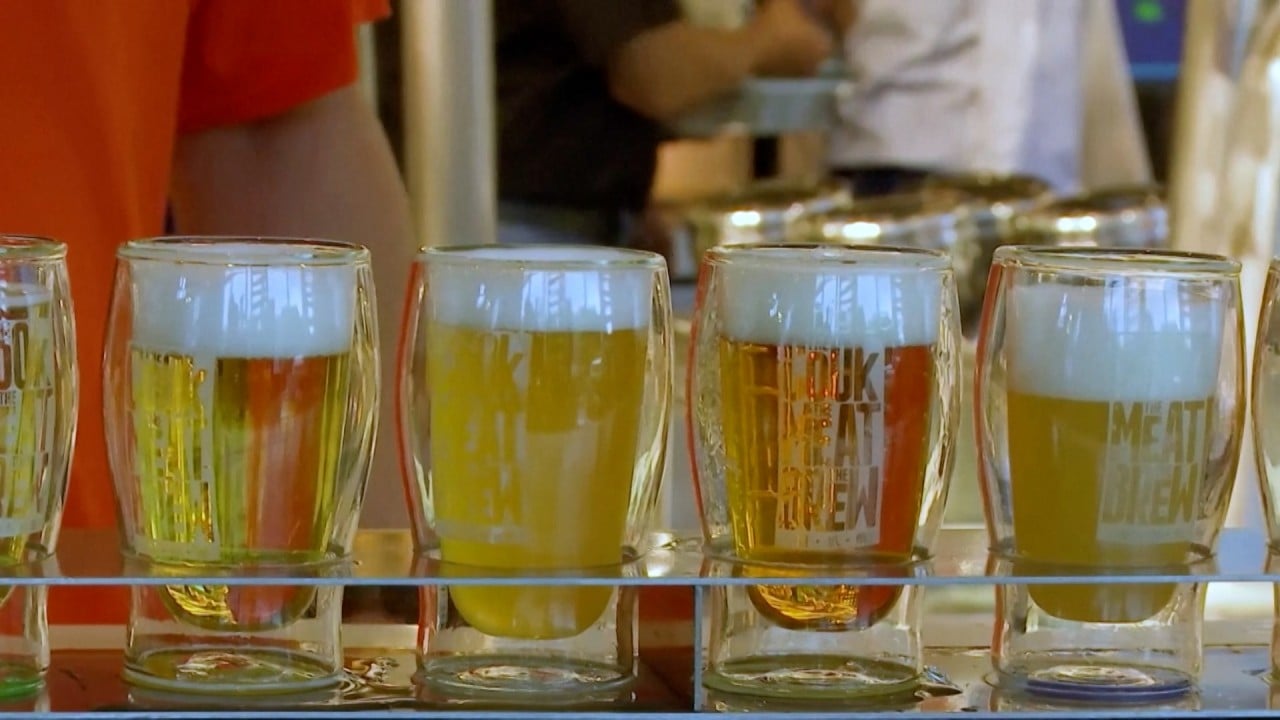
Australia’s Albanese promises ‘patient, calibrated’ talks with Xi Jinping in Beijing on Monday
- Anthony Albanese is the first Australian prime minister to visit China in seven years
- China is Australia’s No 1 trade partner but ties have been strained over issues including the source of Covid-19, human rights and the South China Sea
Speaking in Shanghai on Sunday, Albanese declined to offer details on what he would discuss with Xi, but did say he would not hesitate to be direct on contentious issues.
“Australia will cooperate where we can, disagree where we must and engage in our national interest,” he said.
Albanese arrived in Shanghai on Saturday night, becoming the first Australian prime minister to visit China in seven years.
China is Australia’s biggest trading partner but ties between the two countries have been strained for several years.
In 2020, the previous Australian government, under a Liberal Party leadership, angered Beijing by calling for a global investigation into the origins of the coronavirus that caused the Covid-19 pandemic. The first major Covid-19 outbreak was reported in the central Chinese city of Wuhan.
In the aftermath, China imposed anti-dumping duties on Australian wine and barley followed by informal restrictions on major exports, such as lobsters and coal.
But the relationship has shown signs of improvement.
Since Albanese’s Labor Party government came to power last year, many of the trade barriers China imposed on Australian goods have been removed.
“We want to see any impediments which are there for our trade to be removed and dealt with,” Albanese said on Sunday.
“My government will always back Australian producers,” Albanese wrote on Facebook. “And we will do it in a considered and calm way.”
The first event on Albanese’s calendar on Sunday was the China International Import Expo, where Chinese Premier Li Qiang promised to further relax policies and buy more foreign goods – promises the Australian leader described as “very positive”.
Li said in his opening speech at the expo on Sunday that China would actively push to join the trade deal. The agreement between 11 Pacific Rim countries, including Australia, aims to expand access to foreign markets.
CPTPP members need to offer unanimous support before a new country can join the pact. China still has a long road to qualify for the pact because of its strict data laws and subsidies for state-owned enterprises, which do not satisfy CPTPP requirements for a more level playing field.
“What we’ve said is that any country must demonstrate that it can meet the high standards of the agreement,” Albanese said when asked about China’s accession.
“[It] will be a matter for the members, the arrangements that are in place for the CPTPP are that it needs the unanimous agreement.”
Canberra ‘will not oppose’ China’s CPTPP trade-pact bid
After stopping at the trade expo, Albanese travelled to Beijing, where he is scheduled to speak to Xi about the broader bilateral relationship, including cooperation on climate crisis response.
Australia, a close US ally, has been holding combined drills with the Philippines in the region and separately with Japan. It also supports the 2016 tribunal ruling.
‘Who can speak for me?’: Australian writer fears he will die in China prison
Relations are also strained over human rights issues. Canberra is pressing for the release of Yang Hengjun, the Australian writer and activist who has been detained in China on suspicion of espionage since January 2019.
Yang, whose legal name is Yang Jun, is in poor health, according to his friends.
While Cheng’s release coincided with the warming of bilateral ties, the prime minister said she was freed after Chinese judicial processes had been completed.
Albanese’s trip to China ends on Tuesday.



